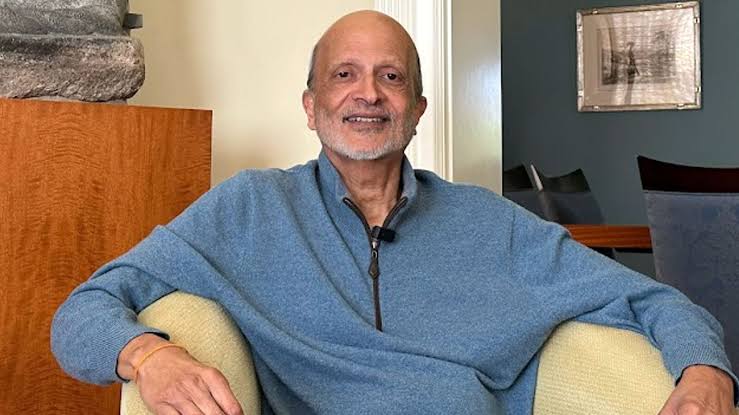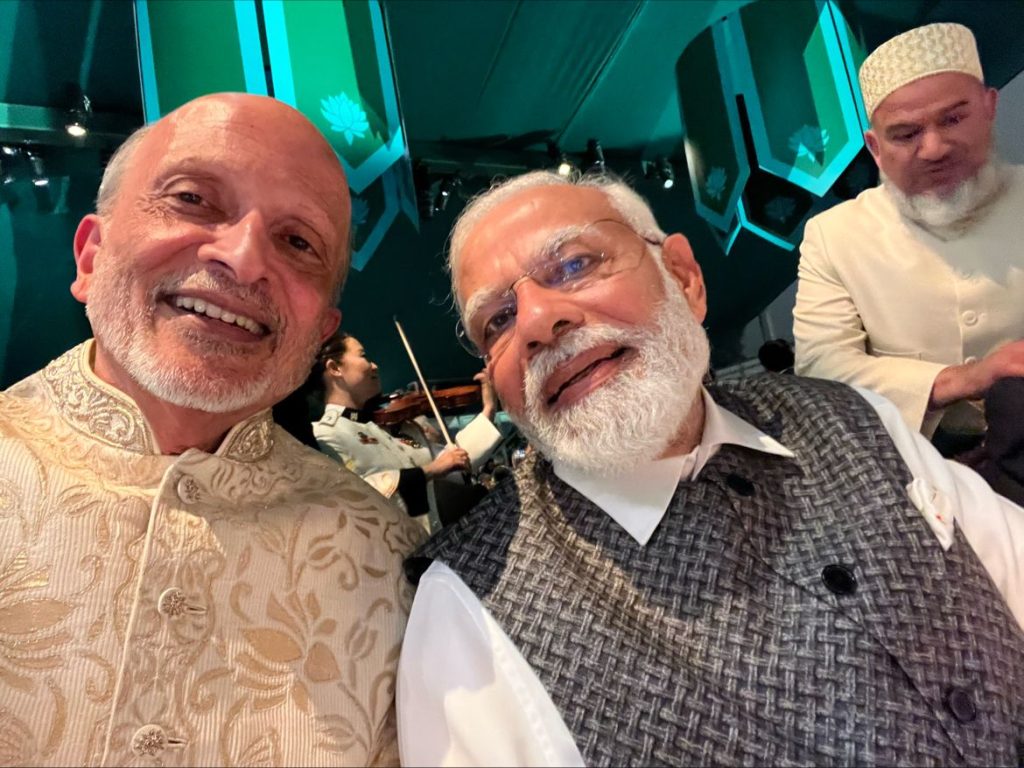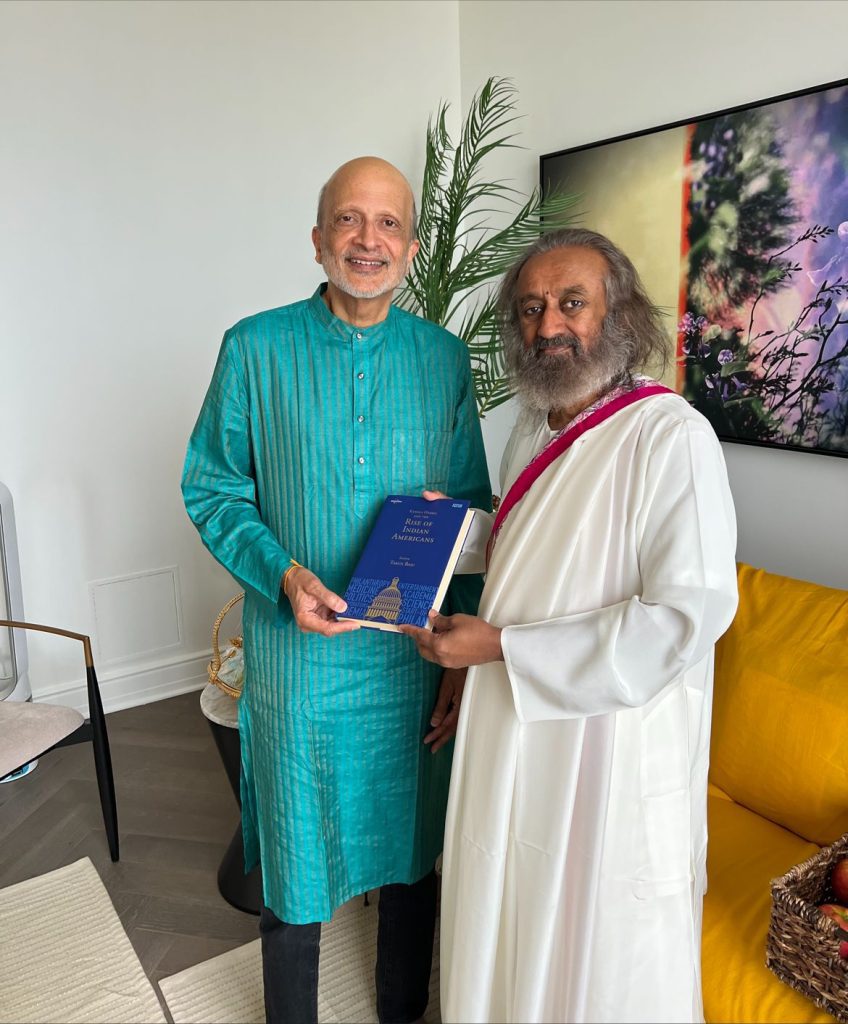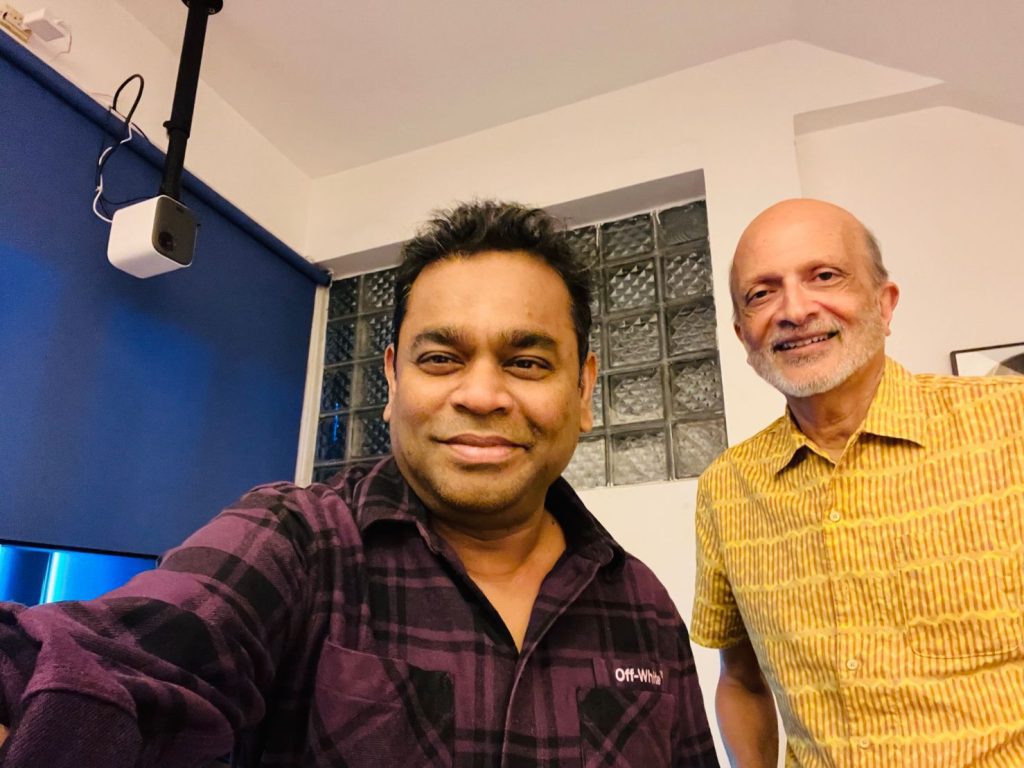(March 12, 2024) These days, MR Rangaswami is a real man about town in the US. He’s at the top summits, meeting celebrities like AR Rahman when they’re in the US, and rubbing shoulders with the likes of PM Modi, attending parties at the home of Vice President Kamala Harris or rubbing shoulders with Ambassadors Taranjit Singh Sandhu and Eric Garcetti. He’s one of Silicon Valley’s top angel investors and philanthropists, as he mobilises his vast network of business leaders, politicians, startups and non-profits to bring about social good. It wasn’t always the case, though. MR Rangaswami’s success came through hard work, failure and the ability to take a risk, which he has done several times, from becoming the US’ first angel investor to organising a CEO retreat for some of the US’ biggest names in the corporate world and giving all the proceeds away to charity.
Back in 1997, however, when MR Rangaswami was busy organising his first CEO retreat under the banner of his company, Sand Hill, it seemed as if things weren’t destined to go his way. He set up an advisory board, put a programme together and sent out invitations. Nobody registered. CEOs received dozens of conference invitations just like this one, and they wanted to know how this one was any different. So, the Global Indian made a bold decision, one that would change his life. He decided to organise the first ever non-profit conference, where 100 percent of the proceeds would be donated. The idea was a huge hit. In the last 15 years, the organisation has given away over $20 million to non-profits, and CEOs pay up to $10,000 per head just to attend. The conference is also a platform for deserving non-profits to network with industry captains, receive advice, feedback and investments.

M.R. Rangaswami is widely regarded as one of the founding fathers of Silicon Valley. He has been profiled on the front page of the Wall Street Journal, named to Forbes’ ‘Midas’ list of investors and has been recognized by CRN as one of the top 25 Tech Executives. He’s also the founder of Indiaspora, through which he mobilises high achievers from the Indian diaspora as a force for good. His ethos is simple: Indians are in the top one percent in the US, with an average annual income of $1,50,000. “Our community tends to be very low profile,” he said, in an interview. “But we need to be more high profile because all Americans need to know that we are generous and we help.” Indiaspora hosts an Annual Leadership Forum, a Philanthropy Summit and the Global Connect Initiative, and engages in community issues as well.
‘Young and naïve’ in Houston, Texas
M.R. Rangaswami first arrived in Silicon Valley “as a young, naive person with absolutely no idea of what the value was about,” as he puts it. He had graduated from Loyola College, Chennai and was a techie with a comfortable job in Houston, Texas. One day, when he met a consultant for training, the consultant asked him what he does. M.R. replied that he had an MBA and works with computers. “He says, ‘what the heck are you doing in Houston? You better get out to Silicon Valley’. In those days there was no LinkedIn, no Facebook, no internet, nothing. In ’82, I’m sitting in Houston saying, how the hell do I get to Silicon Valley?”
The only way was the long way. He went to the library, starting at what Silicon Valley was in the first place. He made a list of potential employers and software company listings, typed out his resume and mailed it out to them.
The Silicon Valley journey
Sure enough, a company called him, did an interview and offered him a job. What MR didn’t know at the time was that he had joined a startup. And he was the only Indian there. The compan did great, doubling in the first year, the second year and third year. Then, in the fourth year, the company asked him to lay off all the employees in his group, until he was the only one left. “Then they called me and said, ‘You’re laid off as well’.”

MR Rangaswami with PM Narendra Modi
However, instead of being bogged down by failure, MR knew the time had come to pivot away from the corporate ladder. “I grew in the industry, seen Steve Jobs, Mary Ellis and Scott McNealy and all the big names in enterprise and consumer tech,” he says. “That was my upbringing. I had a terrific career at companies like Oracle and helped take a company public; the stock went from 25 cents to $50.” And the sudden break in his career allowed him to ask if he wanted to keep on making money or do something different with his life.
This was the mid-nineties, at the height of the startup boom and the Silicon Valley dot-com bubble. And M.R. Rangaswami chose to do what nobody had done before. He founded the first Angel Investor firm, at a time when the phrase hadn’t even come in to use yet. In 1997, he bought sandhill.com for $20, beginning his journey as one of the founding fathers of the Silicon Valley tech startup ecosystem. “I picked up the domain for $20 and thought, that’s going to be my exit. One of these days, someone’s going to offer me a million bucks.” His aim was to help startups, either through feedback and connecting them with investors, or by investing personally. He invested in some 150 companies, a few of them did badly, and others did very well. “I invested in some good companies but that was not my intent,” he says. “It was to help founders.”
The thrill of giving back
It did, however, invoke his spirit of giving. “Then I wanted to bring the whole ecosystem together, through a conference or a retreat for the top 100 people in business and in tech,” Rangaswami recalls. He had seen the Indian community in Silicon Valley grow in leaps and bounds, until they populated the top one percent of the working population in the US. When MR first came to Silicon Valley, it was home to some 10,000 Indians. Fast forward four decades and there are 4,00,000 Indians living there. They’re also among the highest earners, at the forefront of major corporations, VCs, angel investor firms and startups.

MR Rangaswami and Sri Sri Ravishankar
When his corporate retreat idea didn’t take off, Rangaswami decided to make an even bolder move and pivoted straight into the non-profit space and discovered that he had created a very successful mode. “We have been able to give away over $20 million and also bring the CEOs of non-profits into our network and give them mentorship, advice and even money from many of the CEOs of large corporations,” he said, in a talk. “The same CEOs pay a lot of money to attend, today, it’s $10,000 per person. All that money goes to non-profits, I don’t take a single penny out of it and the model has become a huge success.” He also went on to found the Corporate Eco Forum, an invite only community for publicly listed companies with a strong environmental focus in their core business strategy. Members in the Top 100 include Bank of America, Procter & Gamble, Wells Fargo, JP Morgan Chase & Co, Microsoft, Sales Force, The Walt Disney Company and many more.
The birth of Indiaspora
After that, there was no looking back. In 2007, noticing that the Indian diaspora was growing in numbers and in wealth, with no single organisation to unite them, he started Indiaspora. “There are communities for lawyers, doctors and other professions. And there are groups for communities like the Gujarati Samaj and the Tamil Sangam,” he says. “The idea was to bring together people from all walks of life to be a force for good.” Driven by the idea of ‘seva’, Indiaspora helps non-profits and different organisations amplify their messages.
A decade later, Indiaspora is a high profile network of global Indian leaders, involved with philanthropy, civic engagement and social impact and entrepreneurship and innovation. Their philanthropic efforts are in the form of a long-term partnership with Give, based in India. In the US, they aim to support over 500 non-profits through philanthropic contributions from over 200 partners and this arm of the organisation is headed by Ashish Shah. The partnership was formed in 2022, as Give India and Indiaspora hosted the Indiaspora-Give Philanthropy Summit at the Consulate General of India, New York, bringing together leading philanthropists, foundations and non-profits.

Their civic engagement deals with a diverse set of issues, including racial justice and gender equality. And MR Rangaswami believes that all enterprises will eventually be social enterprises, that for-profit companies will work for social good. He urges everyone to live by Salesforce’s’ 1-1-1- model – ‘Donate one percent of your time, product, profit to philanthropic causes’.
Follow MR Rangaswami on LinkedIn.
Read a similar story of Swathi Kantamani, from Oxford classrooms to transforming lives in rural India.




